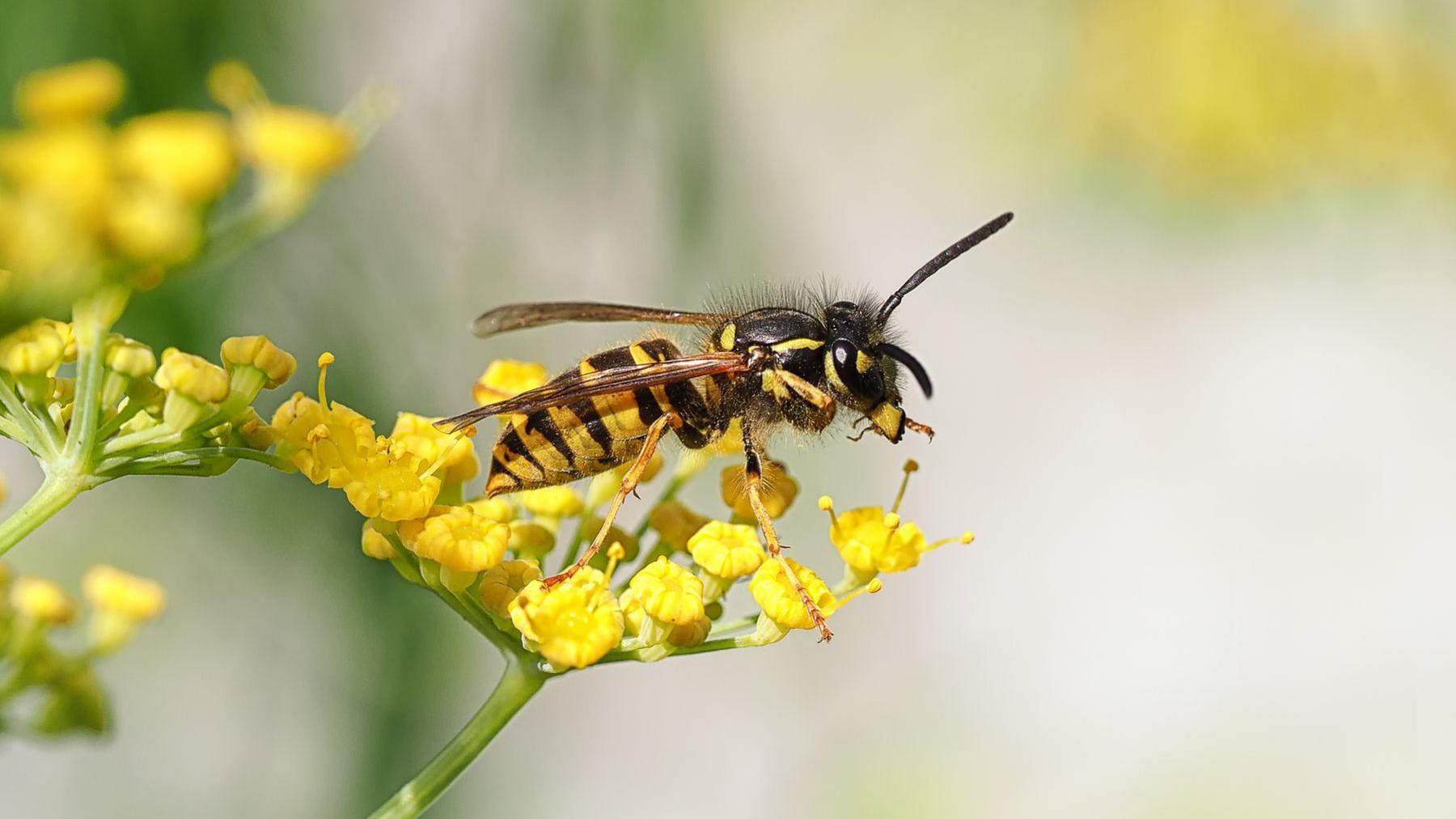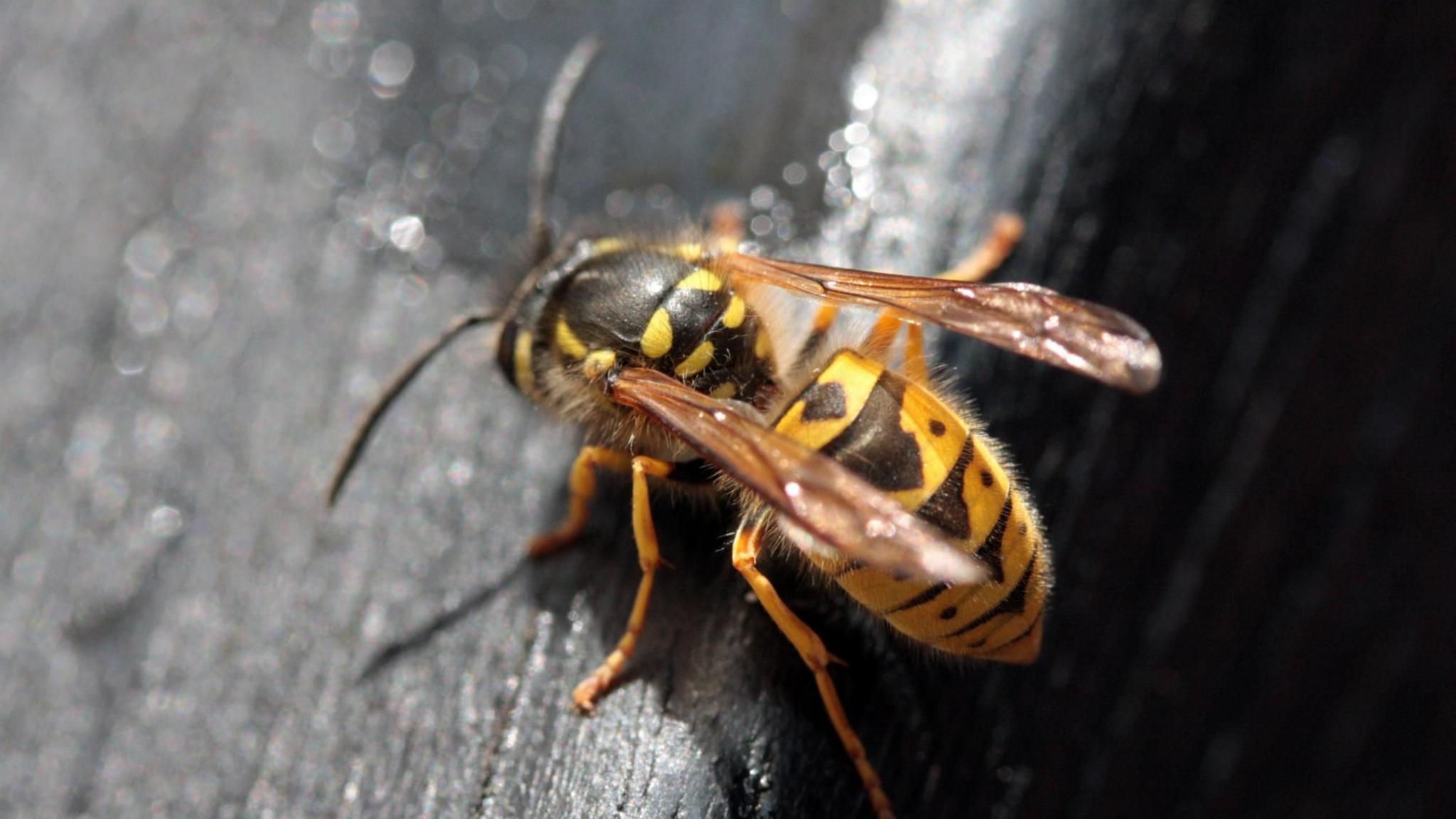'Citizen scientists' called on to monitor UK wasps

There are fears the UK's native pollinators are being threatened by invasive species
- Published
"Citizen scientists" are being recruited to help monitor wasps over fears they may be threatened by an invasive species.
Researchers at the University of Gloucestershire are calling on people to help research the number, diversity and distribution across the UK.
There are concerns about invasive Asian hornets which, while no threat to humans, prey upon bee colonies and other species.
Adam Hart, professor of science communication at the university, said "many people are very concerned" about the impact of Asian hornets on pollinators.
There have been 20 confirmed sightings of the hornet in the UK this year, with a record number across Europe causing fears over biodiversity.
The government's chief plant officer has urged increased vigilance to their presence. They are visibly different to native species, with a dark body, wide orange stripe on the fourth abdomen section and yellow leg ends.
In a bid to better understand wasp populations in the UK, people are being urged to join the Big Wasp Survey, which is currently underway until 11 August and then again from 31 August to 8 September.
'Wasps control pests'
Last year’s survey enabled researchers at University College London to conduct the first large-scale genetic analysis of the Common Wasp thanks to data and samples provided by thousands of citizen scientists.
Professor Hart said: "Bees and wasps play an important role as pollinators – transferring pollen as they visit flowers to drink nectar – while wasps also help to control the numbers of potential pests, such as greenfly and many caterpillars, to protect crops and our gardens."
Follow BBC Gloucestershire on Facebook, external, X, external and Instagram, external. Send your story ideas to us on email or via WhatsApp on 0800 313 4630.
- Published4 August 2024
